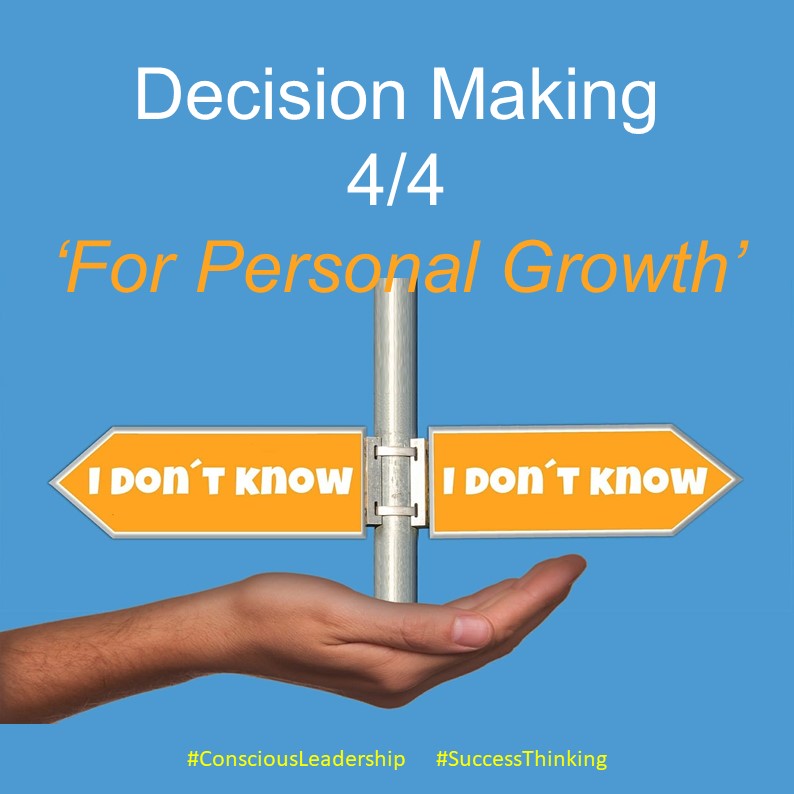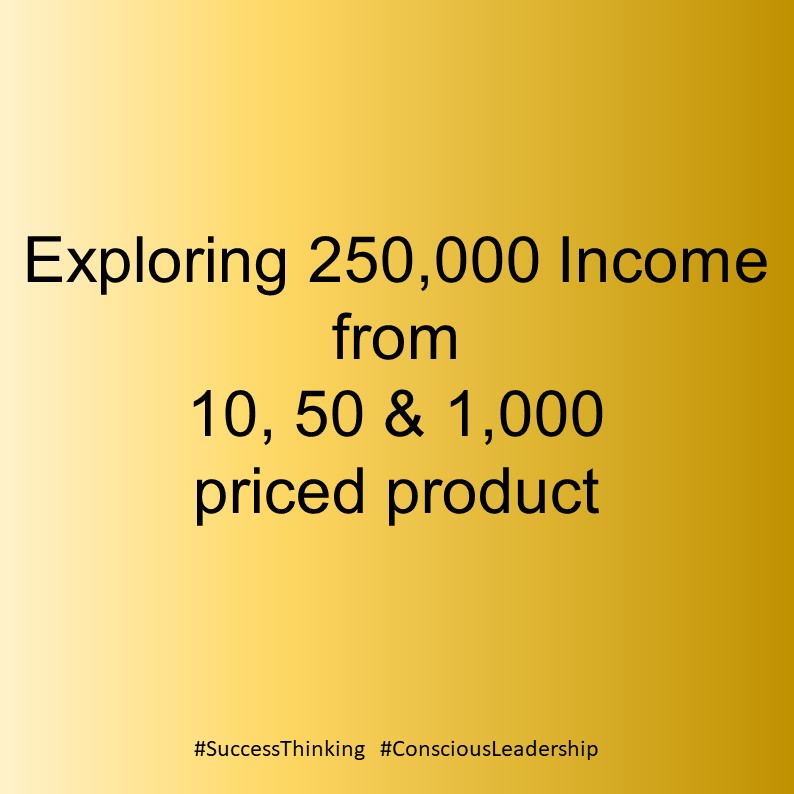What is Hope? Hope is a feeling of expectation and desire for a certain thing to happen. It is a feeling of positivity that can help you to overcome challenges and difficult times. It is an important emotion to have and utilise because:
Unlocking Effective Decision-Making: Exploring Options for Groups to Reach Consensus and Drive Results 1/4
Unlocking Effective Decision-Making: Exploring Options for Groups to Reach Consensus and Drive Results When groups of people need to come to a decision, there are several options and methods they can employ. The choice of decision-making process often depends on the nature of the decision, the size of the group, time constraints, and the level of consensus required. Relay the option below to the context you are in and remember – you can change the current process with agreement or through power – make your choice wisely it will have consequences There are 3 more articles in this series this is 1/4
Effective Decision-Making: Pros and Cons of Different Approaches for Optimal Outcomes 3/4
Effective Decision-Making: Pros and Cons of Different Approaches for Optimal Outcomes Decision making is one of the biggest things to get right, well as right as you can, in both life and business. There are processes you can follow and all have their place linked to the context There are 3 more articles in this series this 3/4
Unlocking Effective Decision-Making: Exploring Options for Groups to Reach Consensus and Drive Results 2/4
Unlocking Effective Decision-Making: Exploring Options for Groups to Reach Consensus and Drive Results When groups of people need to come to a decision, there are several options and methods they can employ. The choice of decision-making process often depends on the nature of the decision, the size of the group, time constraints, and the level of consensus required. Relay the option below to the context you are in and remember – you can change the current process with an agreement or through power – make your choice wisely it will have consequences There are 3 more articles in this series. This is 1/4
Saying Yes and Meaning It, Saying No and Meaning It: The Psychology and Rewards of Knowing the Difference
Making decisions, as in saying yes or no and meaning it, which relate to both intra and interpersonal communication, can be challenging for some and easy for others. It is a skill set that all can learn 100%. Now whether you want to or not is a whole other ‘thing’. Learning it will probably involve change! Some will say there is a balance between saying “yes” and “no”. Which I can accept if you fall too heavily one way or the other. I bet you have met that person that whatever you suggest their automatic response in no! and I am not a gambler and I bet you have also met the person that says yes to everything, resulting in them supposedly being in 3 places simultaneously! Each response carries its own set of implications, and striking the perfect balance is a skill crucial for emotional and mental health. The psychology behind saying “yes” and “no” is immense and far more than one article will cover (I will write more on the subject) Remember: Each use of either yes or no, regardless of reason, brings rewards to the issuer Saying Yes and Meaning It When we say “yes” and mean it, we are opening ourselves up to: Experiences, Relationships, Opportunities Personal growth and Happiness. Saying “yes” is an act of acceptance – it signifies a willingness to participate, to be involved, and to make connections and that can foster magic or mayhem Psychologically, it can manifest as an act of agreeableness and open-mindedness, both of which are integral personality traits that promote positive social interactions. The Physiological Perspective From a psychological perspective, saying “yes” and meaning it can trigger a release of hormones such as dopamine and oxytocin. These hormones generate feelings of happiness, pleasure, and bonding. They help us connect better with others and feel more optimistic about life. Dopamine, the ‘feel good’ hormone, is associated with the reward system in our brain. We feel happy and satisfied when we say “yes” to something we truly want to do or experience. Remember: saying “yes” should be a conscious and mindful decision, not a compulsive reaction to external pressure or fear upsetting someone. The inability to say “no” out of fear of rejection or conflict can lead to an unhealthy pattern of behaviour, often characterised by overcommitment, low self-esteem and burnout. Saying No and Meaning It The power to say “no” and mean it is equally important. Saying no is a crucial aspect of maintaining personal boundaries and ensuring mental well-being. Saying “no” is essentially an act of self-care – it involves setting limits, preserving energy and prioritising one’s own needs. The ability to say “no” corresponds to the psychological concept of assertiveness, which is the ability to express oneself and one’s rights without violating the rights of others. Being assertive means having the courage to express your feelings and standing up for one’s point of view, while also respecting the feelings and beliefs of others. Psychologically, saying “no” and meaning it opens us up to: Maintaining self-esteem Reduces stress. Avoiding situations and tasks that are undesirable, Stopping others from being overbearing or harmful. Remember: saying “no” should be a conscious and mindful decision with all the decision-making information in mind, not a knee-jerk reaction for attention. By saying “no” to such situations, you are, in effect, saying “yes” to your mental and emotional well-being. Furthermore, the ability to say “no” can be associated with the development of resilience and the promotion of autonomy. Say NO to others and YES to yourself and the opposites for the right reasons. Like saying “yes,” saying “no” also requires balance. Constantly declining opportunities or isolating oneself can lead to missed experiences and potential social disconnection. The Rewards of Balance Finding the right balance between saying “yes” and “no” and meaning it is an art. It requires self-awareness, an understanding of your own values and motivators, and the courage to express yourself. It requires confidence, decision-making skills, information-gathering skills, a deep connection with your intuition and above all, knowing your worth and value for self and others. Saying “yes” or “no” extends beyond verbal communication. It reflects your psychological state and ability to balance your needs and wants with those of others. By harnessing the power of “yes” and “no” and using them mindfully and assertively, you unlock the potential to lead more fulfilling, balanced, and healthier lives. If you like what you read in the articles, you may like to read one of Julies books on and on or listen in to Please subscribe and follow more books being written and episodes being produced 🙂
Making Decisions for Personal Growth and Fulfilment: Key Considerations for Self-Directed Choices 4/4
When making decisions for your personal growth and fulfilment, it is essential to consider factors ensuring that your final choice aligns with your goals, values, and personal circumstances. Each decision needs to be, should be context-specific and aligned to your longer-term vision.
Human Branding & What is it?
I have been hearing the phrase ‘Human Branding‘ and wondered what it meant for a short while and it triggered a reaction within me and here is why.
Exploring Profitability: Earning £250,000 a Year with Products Ranging from £10 to £1,000
Earning £250,000 a year before tax is an ambitious and fabulous financial goal; many already achieve it, and many do not, it can be achieved through strategic product choices and effective business planning.
Financial Considerations for Starting Your Own Business: A Guide for Success
When starting your own business, several key financial considerations should be considered. These considerations will help you establish a solid financial foundation and increase your chances of long-term success.
I want to quit my job – part 1
I want to quit my job, I hear many say & I applaud those who want to work for themselves. Who want to be their own Leader. Who want to be their own boss. Who want to take charge and be in control of their own destiny.







